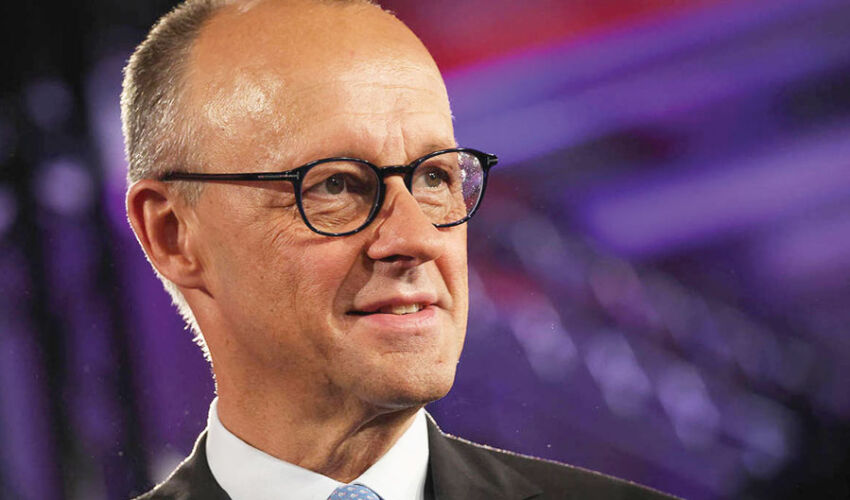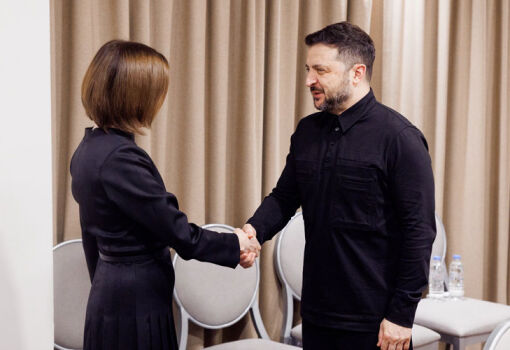
Key to this reorientation was a sober reassessment of Germany’s most important ally. The once sacrosanct transatlantic relationship had been severely eroded. Merz has always been a staunch transatlanticist, but today he openly admits that America can no longer be trusted either as an authoritative guarantor of European security or as a reliable economic partner. A harsh public critic, he recently denounced the meddling of top Trump administration officials in German politics and called it as “as extreme, radical and shameful as Moscow’s meddling.”
It’s not just the rhetoric that is changing. After 1945, Western Europe (followed by much of Central and Eastern Europe after 1989) defined its identity and security with the United States. But 80 years later, the Mertz government is shifting Germany’s focus inward, investing heavily in domestic defense and advocating for greater European autonomy. The irony is that this shift rests on traditional American values: a belief in the power of democracy and freedom. If Europe can reaffirm this principle on its own, it will become a key player in a changing world order.
Germany’s new foreign policy stance now rests on three pillars: unwavering military support for Ukraine (Merz sees it as strategically fundamental), the emergence of nuanced relations with Israel, and a focused defense of European sovereignty.
During Ukrainian President Volodymyr Zelensky’s visit to Berlin on May 28, Germany announced a major aid package worth €5 billion, which includes €1 billion for air defense systems as well as technical and financial assistance for the joint production of long-range weapons on Ukrainian territory. These commitments mark a clear departure from the more cautious approaches of Merz’s predecessor, Olaf Scholz.
Merz has also begun to recalibrate Germany’s approach to Israel, although traditionally it has been unconditional support. According to recent estimates, the war in Gaza, triggered by a Hamas terrorist attack on October 7, 2023, resulted in the deaths of more than 53,000 Palestinians. This forced Merz and key members of his cabinet to reassess Germany’s position. They expressed concern about the extent of Israel’s military response and the deteriorating humanitarian situation in Gaza. These changes in rhetoric echoed the views of the German public.
Yes, Germany and Israel remain interdependent. After a ten-month suspension of German arms shipments to Israel (from November 2023 to August 2024), Germany has resumed deliveries and maintains commitments to purchase Israeli Arrow 3 air defense systems and Heron drones – to be used as aid to Ukraine. Nevertheless, the tone has changed significantly, perhaps foreshadowing a change in policy. And here Germany faces a test: whether it will support the initiatives of the two-state solution and the suspension of the “EU-Israel Association Agreement.” This agreement has given Israel privileged access to the European market since 2000, and its suspension is now seen as a tool to force Israeli Prime Minister Benjamin Netanyahu to respect international humanitarian law and subsequently end attacks in the Gaza Strip.
The most important element of Merz’s initial phase of foreign policy, however, was his emphasis on achieving European strategic autonomy. Because of America’s retreat, Germany embarked on its largest rearmament since 1945, allocating 400 billion euros to defense and security.
Such steps probably cannot be called a revolution in German foreign policy, but they represent a significant evolution. Germany has long been comfortable as an economic power and diplomatic player, but now it is assuming geopolitical responsibilities commensurate with its potential.
Will Merz be remembered as the German leader who made the Zeitenwende (“historic turn”) announced by Scholz back in 2022, following Russia’s full-scale attack on Ukraine? Within the EU institutions and in key member states, including France and Poland (as well as in the UK), Germany’s newfound confidence has already begun to influence debates about defense, democracy, and sovereignty. In a world in which the balance of power is being redefined and alliance relations are being tested, Germany has finally begun to lead on its own terms.
Daniela Schwarzer,
member of the executive board of the Bertelsmann Stiftung, formerly director of the German Council on Foreign Relations and executive director for Europe and Central Asia at the Open Society Foundations.
© Project Syndicate, 2025.
www.project-syndicate.org



